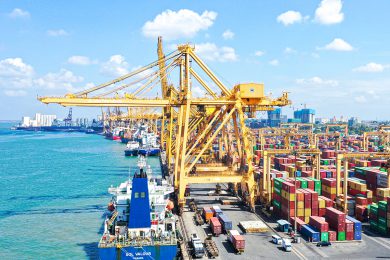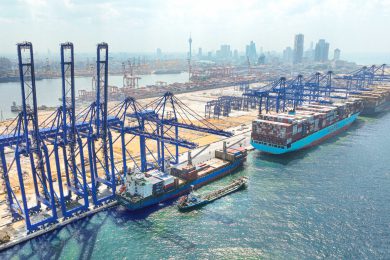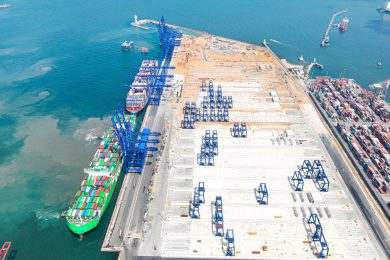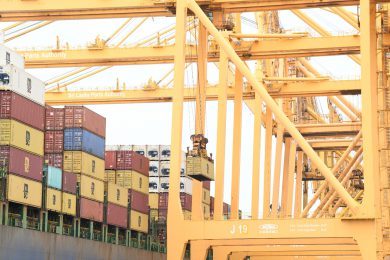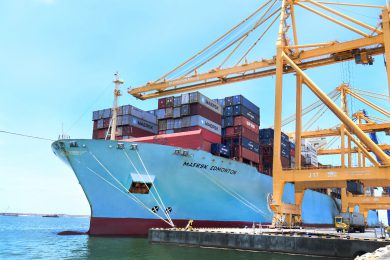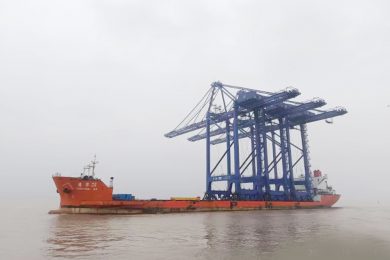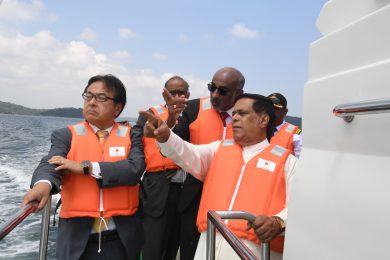The following paper presented by the author at the BIT’s 8th Annual World Congress of Ocean-2019, Xiamen, China recently. We are reproducing the paper with permission. – Editor
by August J. Braakman
During the past decade, the EU market of containerised liner shipping services has drifted into a state of legal uncertainty. This is due to a powerful concurrence of two factors:
(i) the ever-increasing use of Big Data and the ensuing business intelligence and analytics (BI&A) systems and (ii) the absence of tools that are sufficiently adequate and effective for enabling EU and national antitrust authorities to measure, evaluate and neutralise the anticompetitive effects of this technology. This legal uncertainty is being reinforced by the expiration of the consortia BER on 25 April 2020 and the question, if prolonged at all, in what manner.
Big Data and the ensuing BI&A systems provoke a move from supply chain models to commodity-driven logistics solutions. They enable a line/alliance to provide end-to-end services by linking ports and terminals, customs authorities, shipping lines, third-party logistics, inland transportation, shippers and other actors, all together.
The contract a line/alliance makes with a customer crucially determines its arrangements with other actors it has to engage for the fulfilment of its contractual obligations. These arrangements require an absolutely rigorous coordination of the organisational decision processes in the entire logistics chain. As a result, the BI&A system a line/alliance uses for governing these processes and the computer programs used by the actors it has engaged must be semantically interoperable in order for all exchanged data to be automatically interpreted in a meaningful and accurate way.
Major global lines like Maersk and CMA CGM have all but betted their undertakings on the shift to this logistics technology. Other major lines have followed suit. The huge investments lines, and the alliances they belong to, are prepared to make in regard of the (further) development of BI&A technology together with the necessity for other actors to follow suit with regard to their computer programs, is likely to increase the already cut-throat competition between lines/alliances as well as between other actors who can/wish and those who cannot/don’t wish to follow this flow of events. This trend is reinforced by the cooperation between lines/alliances and IT providers and the protection of their joint BI&A systems by IP rights.
As yet, the EU Commission does not dispose of tools that are sufficiently adequate and effective to guarantee fair and undistorted competition and a level playing field to all the stakeholders in the competitive environment of containerised liner shipping services that has been unlocked by Big Data and BI&A systems. The ensuing legal vacuum creates a complex legal border area, which is still unchartered territory. It seems doubtful that the revision of the consortia BER, if at all, will remedy the situation. The consultations that are being conducted do not pertain to amendments that are sufficiently far-reaching to that effect.
The present circumstances, however unfortunate they may be, do not absolve undertakings from the obligation to assess whether the agreements/arrangements to which they are party, directly or indirectly, in isolation or in combination with other factors under their control, have as their object or effect distortions of competition that emerge in the realm of the major parameters that govern the BI&A systems which underlie the logistics chain of their services. This implies that, apart from prices, account should be taken of common information technology standards, engagement of actors in the implementation of services, implementation of services as such and trusts. Irrespective of the consortia BER being prolonged and, if at all, in what manner, this assessment should be made in light of the impact BI&A systems with their current and anticipated state-of-the-art features together with the surrounding Big Data have on the promotion of competition that must be generated in order for agreements/ arrangements to be considered for an exemption from the prohibition of Article 101(1) TFEU.
PLEASE CLICK HERE TO READ THE FULL TEXT OF THE PAPER

About the author: August Braakman (www.braakmanadvocaat.nl) is a Rotterdam-based Dutch advocate with over 40 years of experience. He specialises in Dutch and European Competition law and in European law in general. August issued a wide variety of publications, including a book commissioned and published by the European Commission on the application of European competition law by the Courts of the member states and a series of publications in Lloyds List and the Journal of International Maritime Law on issues like the P3-alliance and its aftermath and the consequences of Brexit for the maritime industry. He is recommended in six editions of Global Competition Review, Who’s Who Legal.



